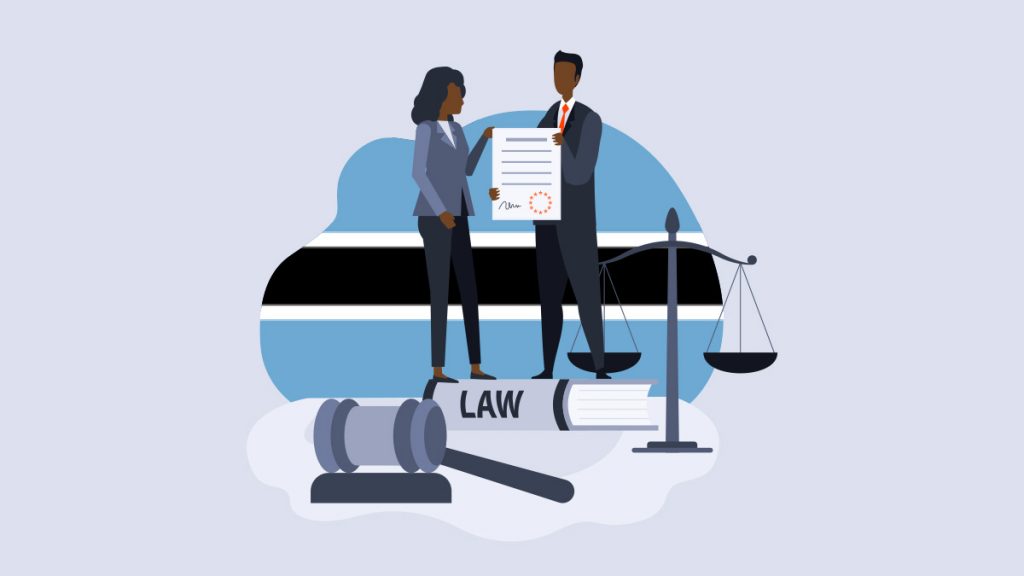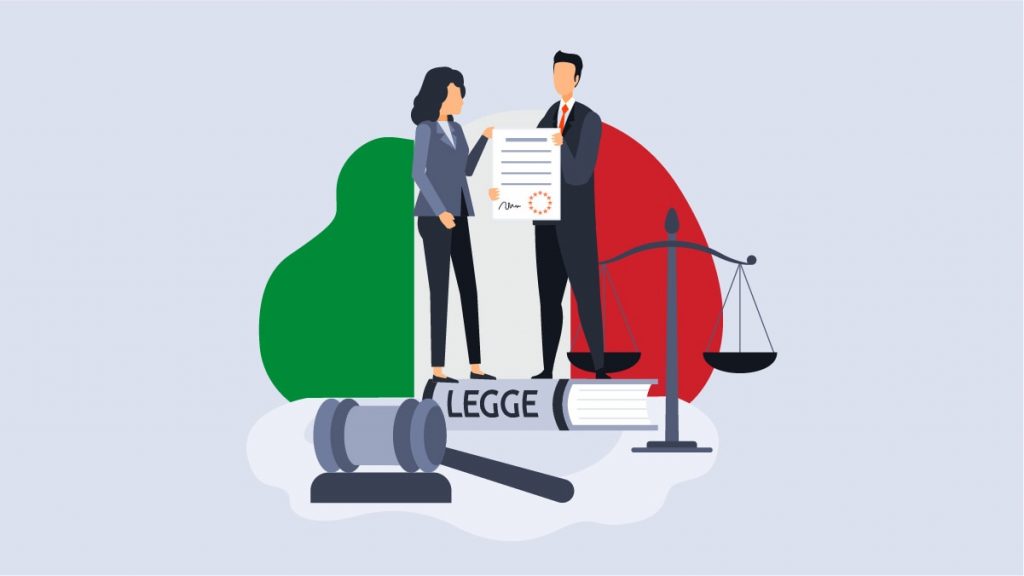Background and Botswana’s fight against corruption
Africa’s oldest multi-party democracy, Botswana is a dominant-party state with the Botswana Democratic Party (BDP) ruling with a majority since independence. Opposition parties can stand for election and despite the fact that they have never held a majority, they wield far more power than in other African countries. As a result, levels of corruption in Botswana were never as severe as in other parts of Africa and the government unveiled a series of effective policies aimed at curbing its growth.
Back in 1994, the Directorate on Corruption and Economic Crime (DCEC) was founded in the wake of a series of scandals and it has been able to achieve high rates of prosecution. Botswana also furthered its fight against corruption by becoming a member of the Eastern and Southern Anti-Money Laundering Group. It has also created a specialised court exclusively dedicated to criminal corruption offenses and a variety of legal provisions have come into force such as the Whistleblower Act and the Proceeds and Instruments of Crime Act.
Current Botswanan President Mokgweetsi Masisi has been vocal about the dangers of corruption and he has called on other African governments to implement effective anti-corruption policies. All of Botswana’s efforts have had a significant impact and in the latest edition of Transparency International’s Corruption Perceptions Index (where corruption is measured on a scale from 0-100 where 0 is cleanest), it had the lowest score of any country in Africa after the Seychelles. Botswana’s impressive performance placed it 35th globally, the same position as Spain and even lower than European countries such as Italy, Slovenia and Poland.
Botswana’s 2016 Whistleblowing Act
As part of its ongoing campaign to stamp out corruption, Botswana has encouraged its citizens to speak up and actively report cases of wrongdoing such as crime and financial misconduct. On 03 August 2016, a comprehensive whistleblowing protection law was adopted and it allows individuals to pass on information anonymously without the fear of retaliation. Officially called “the Whistleblowing Act of 2016”, the legislation has seen the government establish hotlines whereby citizens can report incidents of illegal conduct.
The Whistleblowing Act defines a whistleblower as any person who makes a disclosure of impropriety that is protected in terms of section 4 of the legislation. He or she is protected from victimisation by an employer, fellow employee or any person for making a disclosure. The following are among the forms of retaliation covered by the Act:
- Dismissal or suspension from work
- Position declared reduntant
- Denial of promotion
- Transfer by the employer
- Harassment or intimidation by the employer or fellow employees
Whistleblowers can only receive protection if their report is deemed to have been made in good faith and that there is a reasonable belief that their complaint is substantially true. Additionally, an individual speaking out must contact an authorised person or agency to have their report investigated.
Whistleblowing procedures and penalties
The Whistleblowing Act allows individuals to make disclosures in writing or orally. Furthermore, all forms of communication technology can be utilised for reporting such as email or a digital whistleblowing system. When a report is made, it should contain a range of information such as the personal details of the whistleblower, the nature of the offence, and the identities of the individual(s) involved.
Section 8 of the Whistleblowing Act states that the following institutions are authorised to receive and investigate whistleblowing reports:
- The Auditor General
- Botswana Defence Force
- Botswana Police Service
- Botswana Prisons Services
- Botswana United Revenue Service
- The Competition Authority
- Directorate on Corruption and Economic Crime
- Directorate of Intelligence and Security
- Financial Intelligence Agency
- The Ombudsman
An authorised contact must refer the disclosure to the appropriate agency with the power to deal with the offence within a period not exceeding seven working days. A person knowingly making a false disclosure or an individual exposing the identity of a whistleblower is liable to be fined up to P10,000 (approximately €715 as of February 2023) and to a term of imprisonment of up to five years (or both). Similar penalties are in place for authorised contacts wilfully failing to process reports and for whistleblowers who disclose sensitive information to a third party after making a disclosure.
Criticism and limitations
- While Botswana’s law places it ahead of many of the world’s most developed countries in terms of whistleblower protection, the situation is far from perfect. Botswana was ranked 38th for press freedom in Reporters Without Borders’ 2020 World Press Freedom Index and it plummeted to 95th position in 2022 edition of the research. Employees in the tightly regulated media sector are frequently dissuaded from exposing wrongdoing due to the threat from a range of privacy and sedition laws. These laws are also known to be used to keep individuals working in the public and private sectors silenced.
- In order for the Whistleblowing Act to remain effective, there have been calls to ease the above privacy laws to facilitate those making disclosures. There are also concerns about the requirement for a whistleblower to supply their personal details when making a report. While safeguards are in place and whistleblowing reports are supposed to remain anonymous, individuals can still suffer retaliation after speaking out.
- A number of reforms have been suggested to improve the situation such as the establishment of an independent directorate similar to chapter 9 institutions in the South African legal system. It has also been suggested to replace the criminal sanctions for inaccurate disclosures with a civil sanction that does not exceed fines of P5,000. Terms of imprisonment should also be abolished for inaccurate reporting, even if the motive was malicious.
Whistleblowing laws in Southern Africa: a brief overview
- Along with Botswana, Namibia, South Africa and Zambia are countries in southern Africa with dedicated whistleblower protection laws while Malawi, Mozambique and Zimbabwe have protective provisions as part of other legislation. All four countries with dedicated laws provide different categories of wrongdoing that can be reported such as health and safety violations, environmental breaches or criminal offences. As is the case in Botswana, they also designate existing agencies to process and investigate reports.
- Namibia’s Whistleblower Protection Act of 2017 echoes that of Botswana in that it protects any person making a report that qualifies for legal protection under the law. Similarly, it also considers a whistleblower any person making a disclosure of improper conduct in terms of the overall Act. In Zambia and South Africa, however, the definition of a whistleblower is more restrictive and the term is defined as “employee” and “employer/worker” in each country, respectively.
- Despite that limited definition, both still have a broad meaning in the two countries. For example, in Zambia, the 2010 Protection of Whistleblowers Act takes into account any person excluding an independent contractor who works for another person, whether incorporated or not, or for a government agency, who receives or is entitled to receive remuneration. It also includes any other person who assists in carrying on or conducting the business of an employer in any manner. South Africa’s Protected Disclosures Act 2000 contains similar terminology.
- Namibia’s Whistleblower Protection Act established a Whistleblower Office to investigate misconduct but it has weaknesses, most notably that whistleblowers are only protected in a number of instances. Whistleblowers in Namibia are also constrained by confidentiality clauses in their employment contracts. In South Africa, the whistleblowing law is considered too restrictive, affording protection to certain disclosures but also frequently leaving whistleblowers completely unprotected. A major flaw in Zambia’s Act involves the heavy prosecution of frivolous or malicious disclosures which is actually contributing to a culture of silence.
Conclusion
When it comes to legislation protecting whistleblowers, the spotlight is firmly shining on Europe with most EU member states transposing the EU Whistleblowing Directive, bringing the bloc’s protection levels to a comprehensive and universal standard. Other parts of the world shouldn’t be forgotten and some governments are attempting to deliver their own ambitious laws to protect whistleblowers.
While Botswana’s Whistleblowing Act certainly has its flaws (along with Namibia, South Africa and Zambia), the legislation represents a serious statement in its fight against corruption. The country’s impressive position on the 2022 Corruption Perceptions Index is proof that its wide-ranging anti-corruption efforts are having a successful impact.
Guide to the Introduction of Whistleblowing Systems
How to successfully implement a whistleblowing system in your organisation.









